Pass, move and take your chances: how Stats Zone saw Germany 1-0 Argentina
Gary Parkinson uses FourFourTwo's free analysis app Stats Zone to explain how the 2014 World Cup Final unfolded...
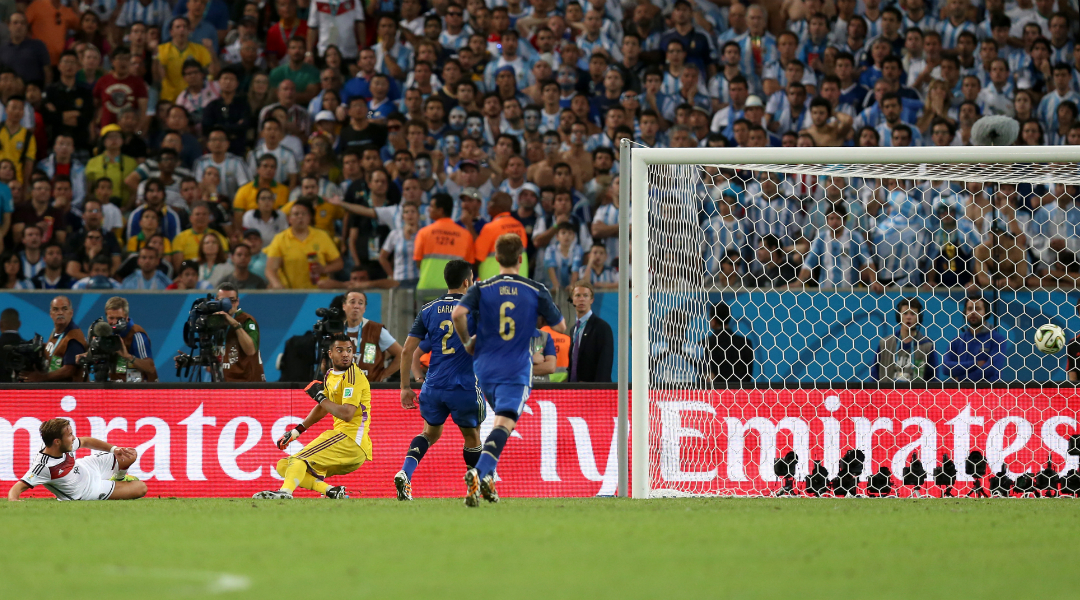
Germany dominated from the off. They had 81.6% possession in the first 9 minutes, which was evident in the final-third ball count: 22 completed out of 30 compared to Argentina's 0 of 4.
They also quickly totted up 87 total completed passes to Argentina's 13.
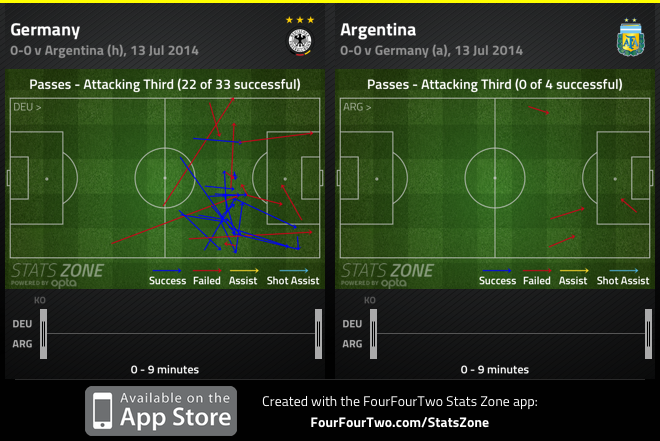
It barely took 15 minutes for Germany to complete 100 passes, even if Argentina had 2 of the first 3 shots.
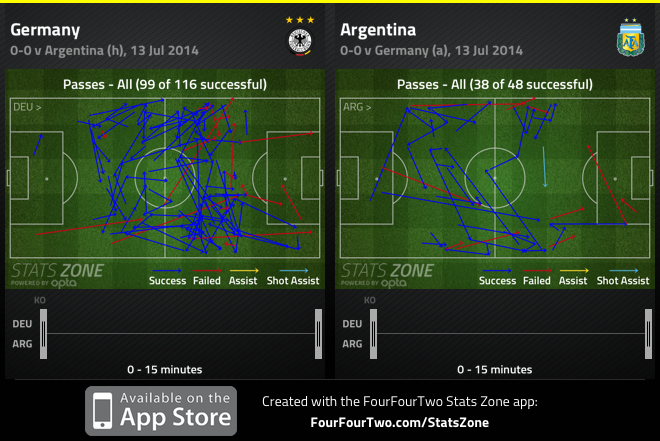
Toni Kroos was busy in the midfield, as was Bastian Schweinsteiger - although Kroos gifted Argentina the biggest chance of the first half when his nodded backpass was intercepted by Gonzalo Higuain, who pulled it wide. For comparison, at this point Argentina had completed 42 of 57 in total.
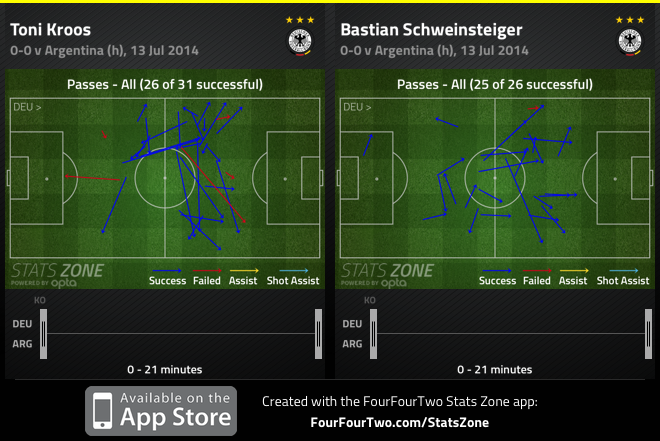
Just after the half-hour, Higuain scared Germany by tapping in - but was offside. By now, Kroos had completed more final-third passes than the entire opposition.
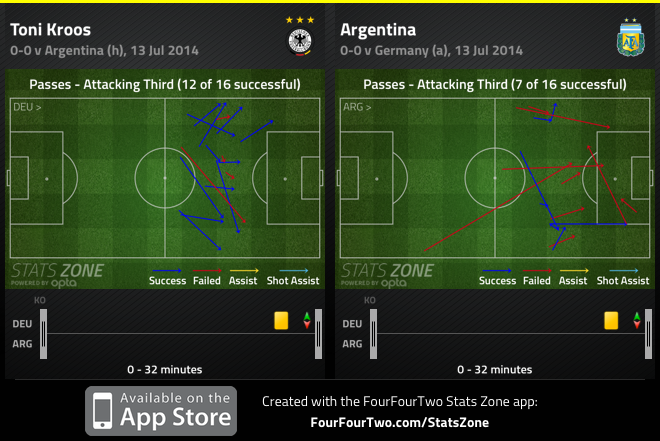
By half-time, Germany had completed 264 of 307 passes (86% completion), Argentina 93 of 133 (70%). Germany had 70.2% possession.
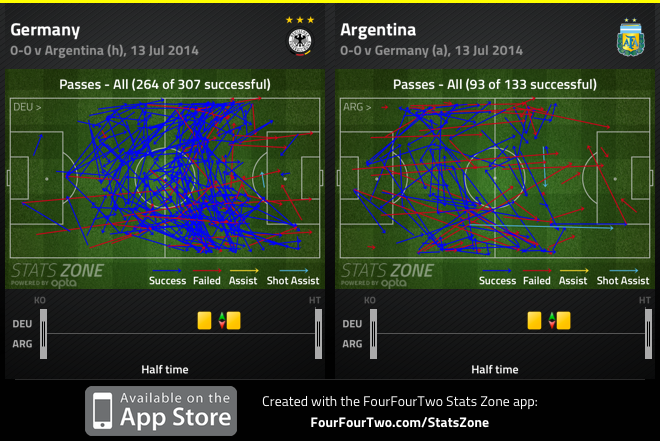
The final-third passes were even more disparate: Germany completed 76 of 103, Argentina 9 of 22.
Get FourFourTwo Newsletter
The best features, fun and footballing quizzes, straight to your inbox every week.
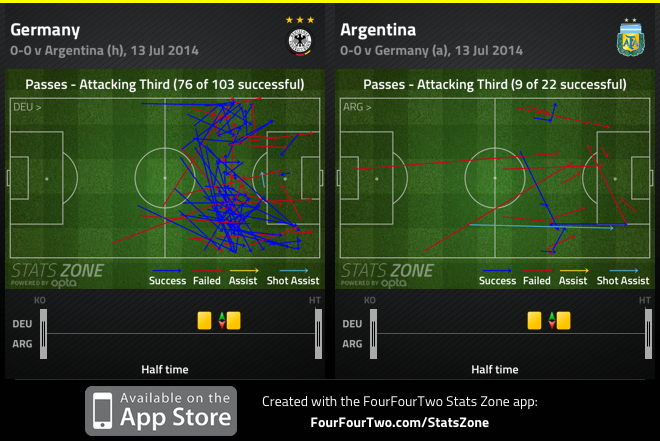
Germany were picking the ball up in midfield, Argentina more in defence.
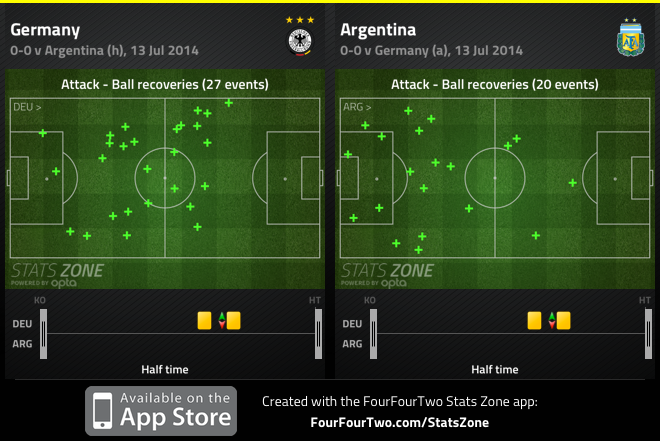
The average positions showed Germany's domination.
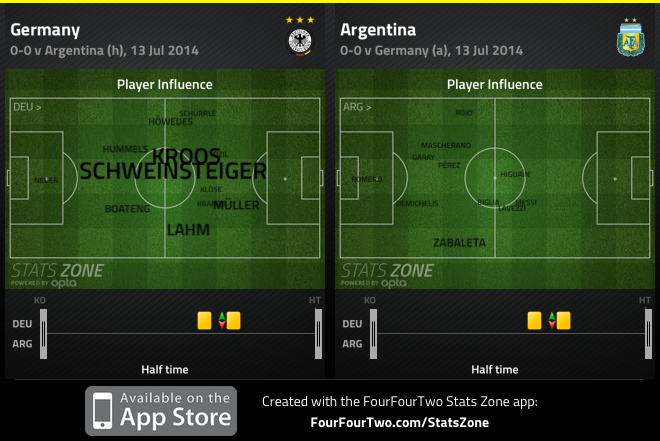
At the heart of that domination were Schweinsteiger and Kroos in midfield.
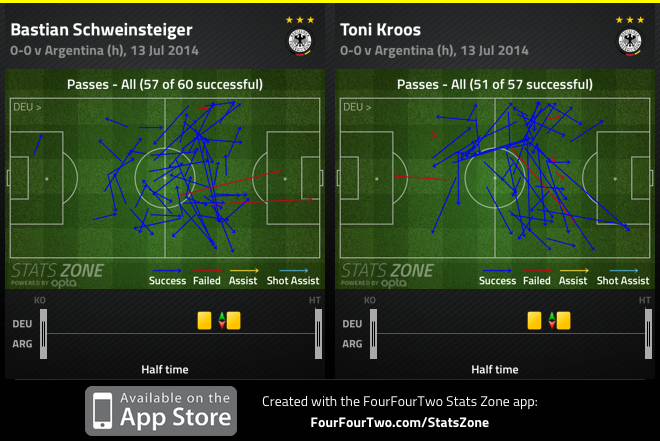
By the hour, the shot count was still level at 4-4 but Neuer still hadn't had to face a shot on target.
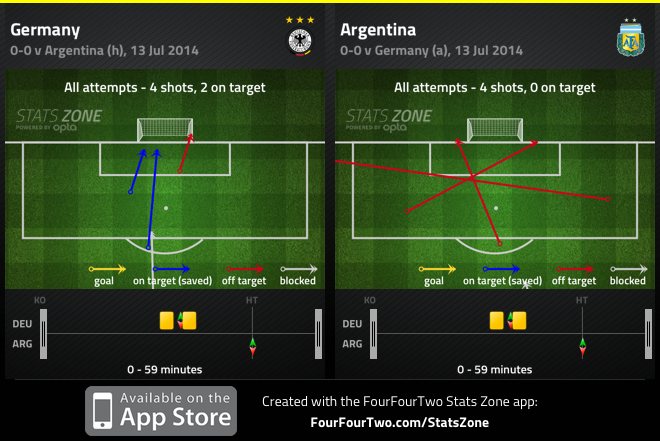
The second-half pass map showed that since the break Germany had done a better job of spreading the play...
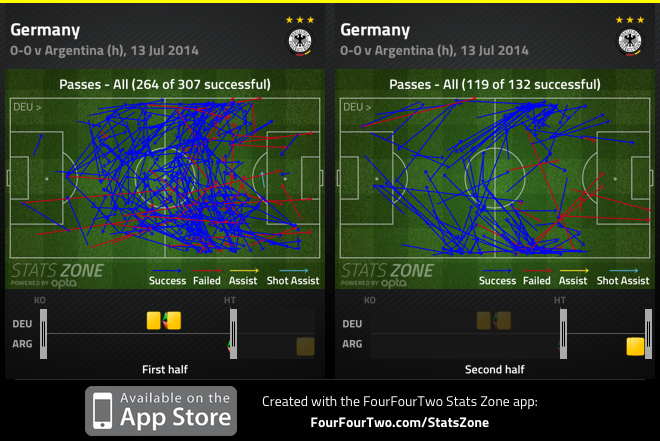
...but Argentina were keeping Schweinsteiger much quieter, with 12 passes compared to the first half's 57.
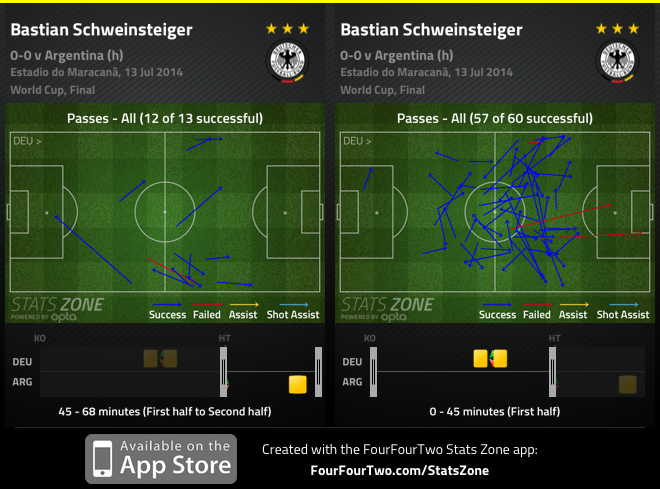
Comparing the sides' second-half passing shapes showed a more even half, although Germany were still on top.
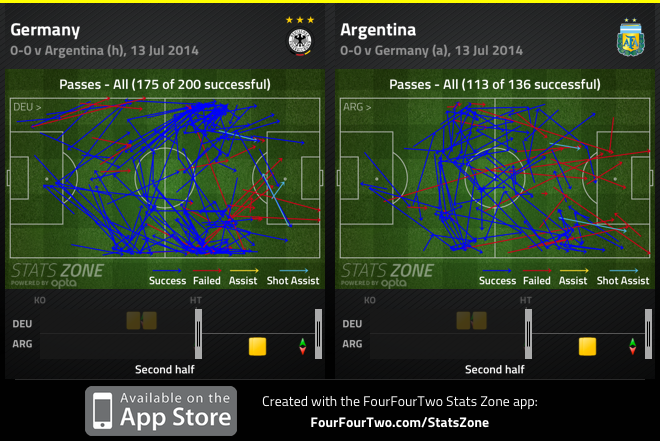
After normal time, the shot count was 7-6, but Argentina still had 0 on target.
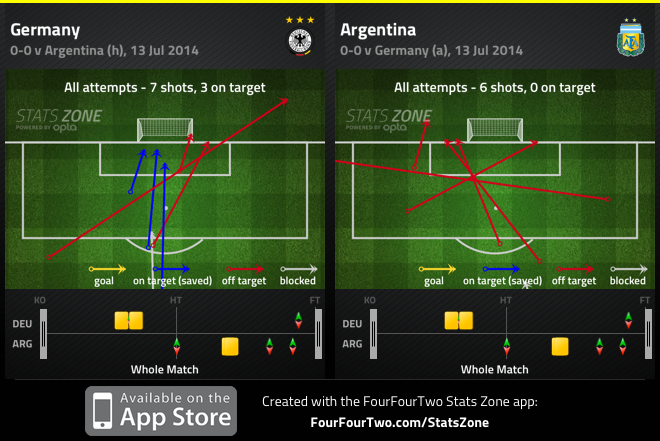
Germany had completed 467 of 544 passes (86% completion), Argentina 272 of 346 (79%). Germany had 61.7% possession over the 90 minutes, significantly down on their 70.2% half-time total.
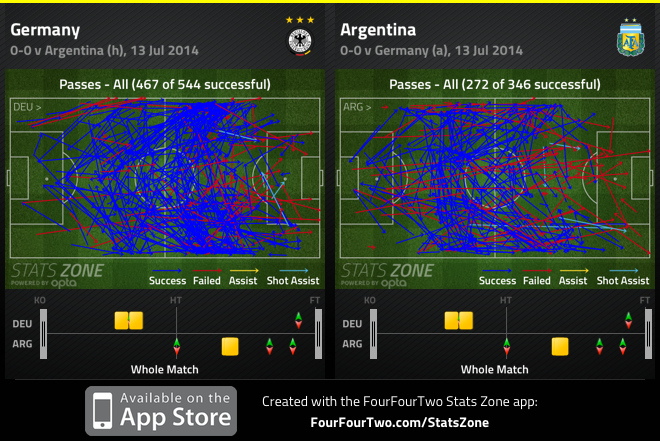
However, the final-third passes still clearly favoured Germany.
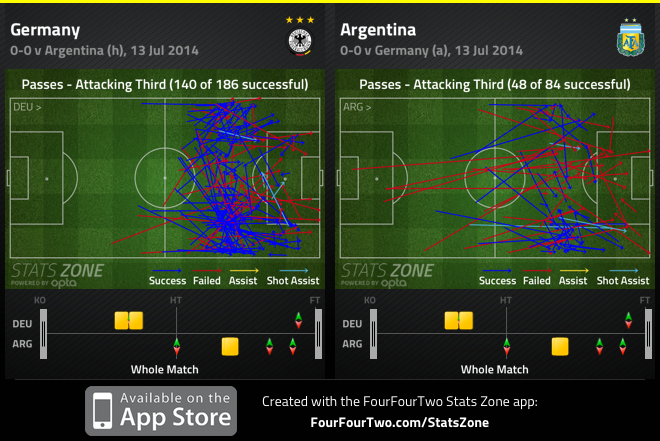
Perhaps surprisingly Germany had made more tackles, particularly higher up the pitch, while Argentina preferred to sit deeper.
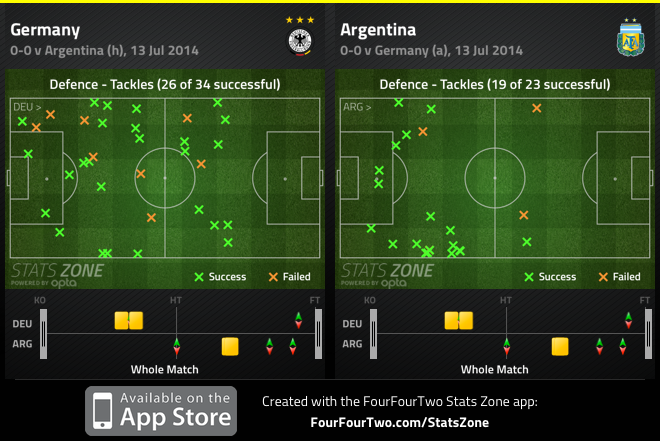
Germany started extra-time in a hurry. The figures for the first 15 period of overtime showed they piled up an eye-watering 119 of 132 passes compared to Argentina's mere 18 of 24...
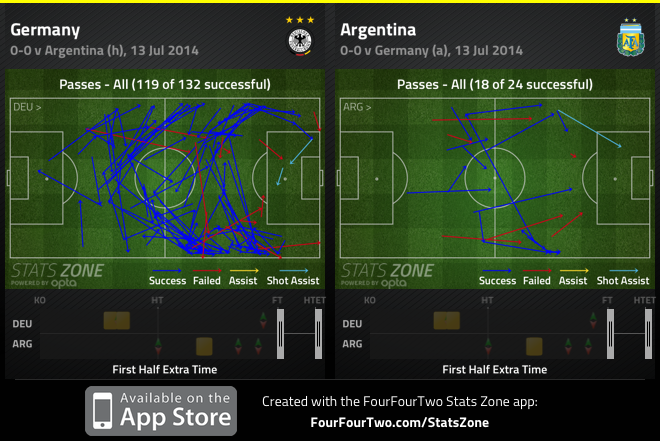
...while the final-third passes also told a story: in 15 minutes Germany completed 48 of 57 while Argentina managed just 8 of 11.
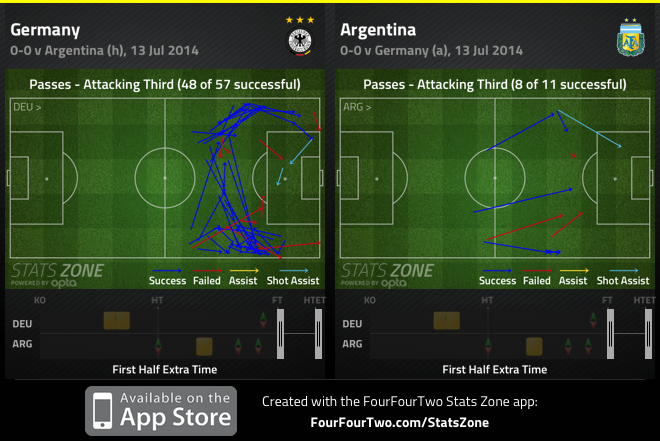
When the goal came, it was typical of this Germany team: probe for a weakness, drag the opponents around and punish ruthlessly. Mario Gotze's run created space for Andre Schurrle to fly down the wing, centering for his fellow substitute to calmly control on his chest and fire past Sergio Romero.
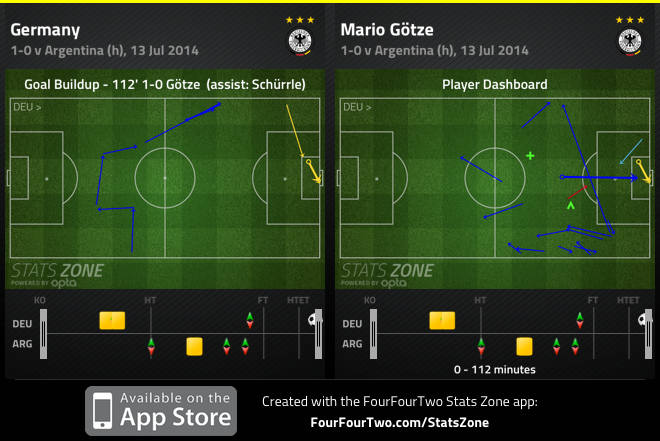
The final pass totals summed up the Europeans' domination: Germany completed 641 of 747 passes (86%), Argentina 329 of 427 (77%).
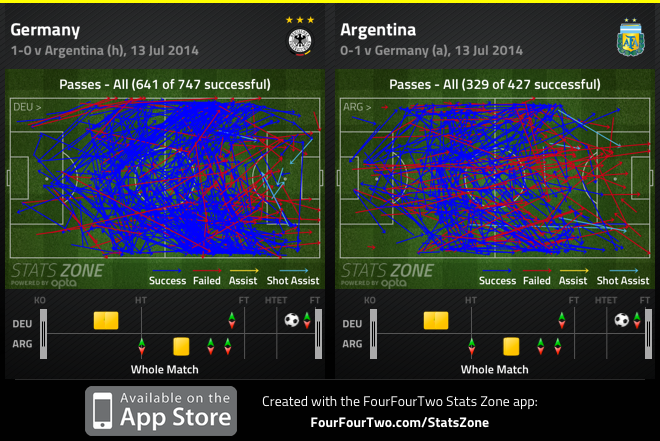
The final-third passes were more of the same: Germany 194 of 257, Argentina 64 of 113.
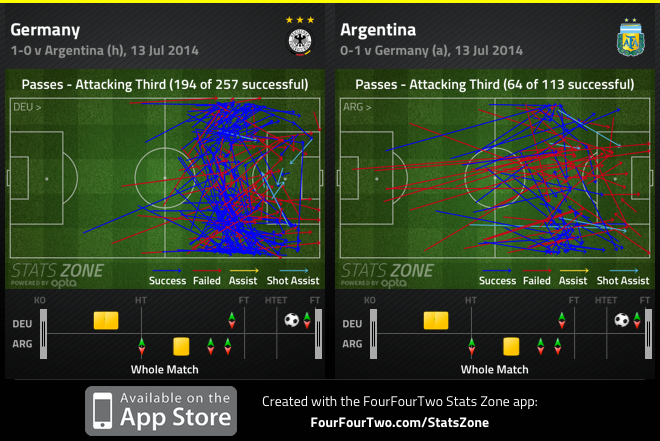
The final shot-count revealed that each side had 10 attempts, but the on-target totals tell a story: Germany 5, Argentina 0. The South Americans had their chances, but didn't take them. Germany worked the ball, worked their opponents and worked hard, and only a churl could say they didn't deserve to win game and tournament.
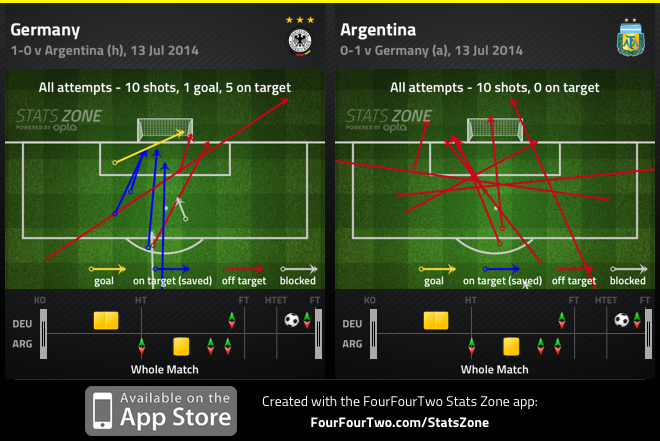
Facts and figures
- Germany have won the World Cup for a fourth time. Only Brazil (5) have more wins.
- A confederation (UEFA) has won 3 World Cups in a row for the first time.
- Germany are the first European team to win a World Cup in the Americas.
- Argentina failed to have a shot on target in a World Cup game for the first time since the 1990 final vs West Germany.
- Germany’s total of 18 goals is the most in a World Cup since Brazil scored 18 in 2002.
- The 2014 World Cup ends with 171 goals, the joint-most in a single World Cup (along with 1998).
- Argentina conceded a goal in extra-time at the World Cup for the first time.
- 8 games went to extra-time in the 2014 World Cup, a joint-record along with 1990.
- Christoph Kramer is the first player to make his full World Cup debut in the final since Gustavo Dezotti for Argentina in 1990.
- Miroslav Klose played in the 2014 final, 12 years after appearing in the 2002 final. Only Pele (1958 and 1970) has appeared in finals 12 years apart.
- Mario Götze’s winning goal was 32nd substitute goal of the tournament, a World Cup record.
- The last 3 World Cup finals have gone to extra-time.
- Argentina only trailed for 7 minutes in the entire tournament.
- Götze was the only player to have more than 1 shot on target in the final.
- Argentina had just 36% possession; their lowest return from a single World Cup match (1966-2014).
Gary Parkinson is a freelance writer, editor, trainer, muso, singer, actor and coach. He spent 14 years at FourFourTwo as the Global Digital Editor and continues to regularly contribute to the magazine and website, including major features on Euro 96, Subbuteo, Robert Maxwell and the inside story of Liverpool's 1990 title win. He is also a Bolton Wanderers fan.
